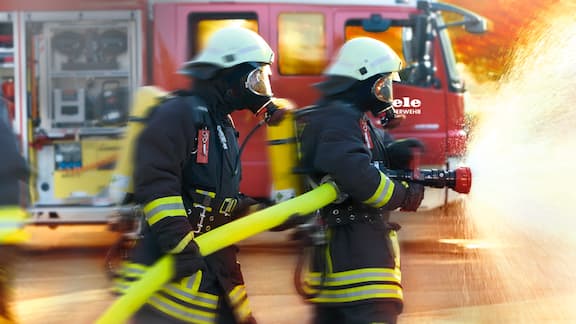
Hygiene expertise made by Miele
Here are our tips to help you in your everyday working life
Hygiene applies to every area of life from kitchen, laundry and hospital hygiene right through to environmental hygiene. Most of the hygiene measures we take nowadays are just part and parcel of life. Nevertheless, insufficient hygiene conditions still persist, leading time and time again to hospital-acquired infections and fatalities. If nothing else, the arrival of the coronavirus pandemic in 2020 has clearly demonstrated that hygiene measures can become a normal part of everyday life. In this regard, Miele Professional machines give you complete peace of mind because they have been specifically designed and approved for the highest standards of hygiene. By following our tips, you can also be sure of deactivating and killing potential viruses and bacteria.
Tips for improving hygiene in your sector
Retirement and nursing homes
Vulnerable people in particular need of protection: these hygiene measures and tips will help you get the best from your Miele Professional machines when using them from day to day at your retirement or care home.
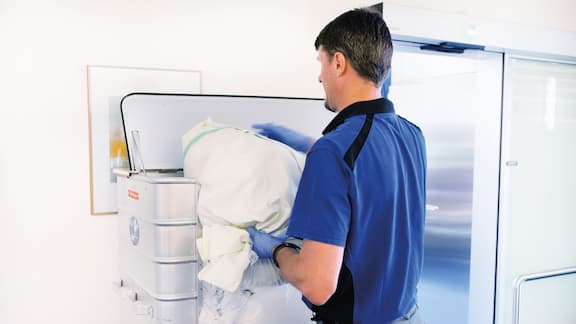
Hygiene in laundry care
Particularly in high-care settings, laundry that comes into contact with patients is subject to tough requirements. In addition to bed linen and towels, this also includes workwear.
Potentially contaminated laundry should always be washed using a thermal or thermochemical disinfection process in accordance with the stipulations of the national infection control authorities or hygiene associations. Furthermore, it is recommended that personnel wear protective gear when handling contaminated laundry, such as gloves, possibly a plastic apron over their workwear, and a suitable face mask. In the interest of protecting the actual personnel as well as other people who may come into contact with it, this equipment must remain in the laundry area at all times and be washed there and nowhere else.
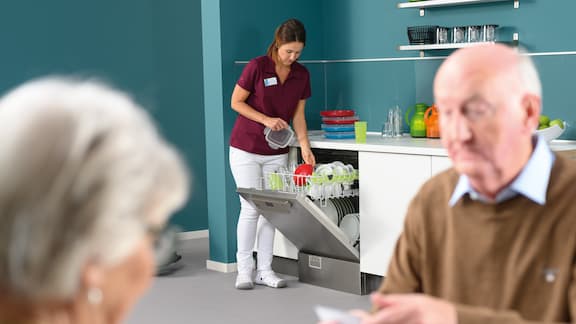
Hygiene in the kitchen
Elderly people are particularly susceptible to food-related infections. However, there are a few simple steps that can be followed to increase hygiene in kitchens at retirement and care establishments. For instance, staff should always pay attention to good basic hygiene when unloading dishes to avoid the risk of recontamination. In other words, they should wash their hands regularly and always before unloading the dishwasher.
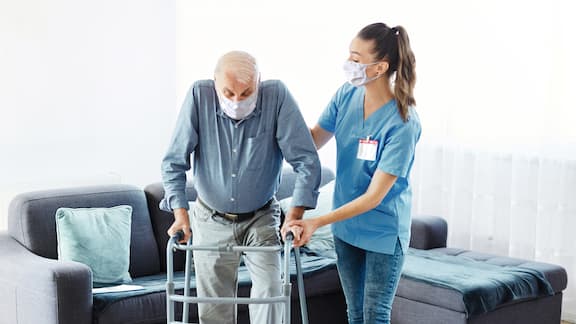
Miele Professional solutions for retirement and nursing homes
Medical facilities
Maximum safety: these hygiene measures and tips will help you get the best from your Miele Professional machines when using them from day to day at your registered doctor's or dental practice.
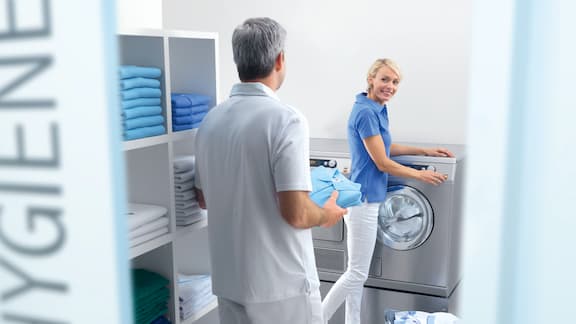
Hygiene in laundry care
In order to protect oneself and others, it is particularly important to subscribe to hygiene rules. Within this context, the proper use of protective clothing is vital. Naturally, it is equally important that protective clothing that has been worn and any potentially contaminated workwear gets disinfected during washing. The proper reprocessing of textiles and personal protective equipment helps in deactivating viruses and in slowing down their spread. By using thermal and thermochemical disinfection programs, you can always be sure that potentially contaminated textiles are safe to reuse. Employees must not take potentially contaminated workwear and protective apparel home with them for the purpose of washing it there. This is the only way to prevent cross-contamination through contact with private laundry. Proper reprocessing always has to be ensured. Miele Professional washing machines comply with the strict stipulations of national infection control authorities and hygiene associations. When loading and unloading laundry, staff should take precautions – particularly during a pandemic – by wearing protective gloves and a plastic apron over their own workwear, for example.
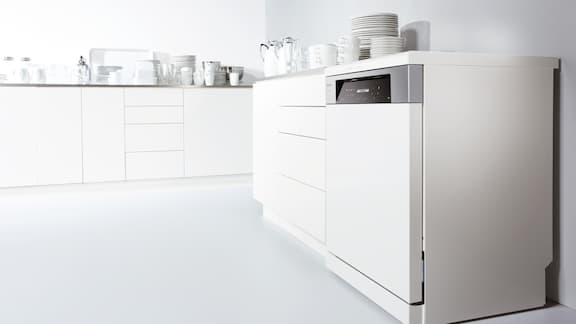
Hygiene in the kitchen
High standards of hygiene do not just apply when dealing with patients. Even behind the scenes, all involved demand immaculate cleanliness. In this regard, a few simple steps can be taken to help people make more hygienic use of the dishwasher in the break room. For instance, staff should always pay attention to good basic hygiene when unloading clean dishes to avoid the risk of recontamination. In other words, they should wash their hands regularly and always before unloading the dishwasher.
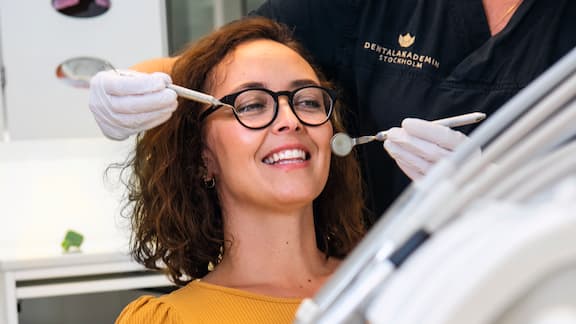
Miele Professional solutions for dental practices
Hospitals
A sensitive environment: these hygiene measures and tips will help you get the best from your Miele Professional machines when using them from day to day at your hospital.
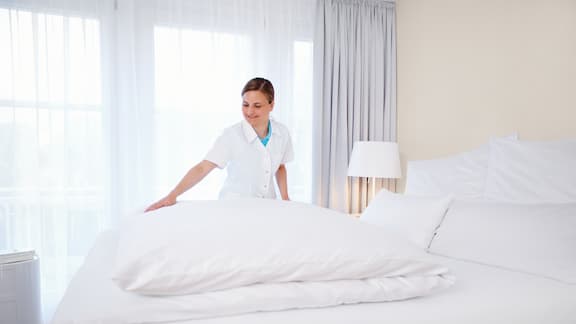
Hygiene when handling hospital laundry
Protecting patients is the top priority at hospitals. And adopting appropriate hygiene precautions can definitely help with this. Laundry that comes into contact with patients is subject to various guidelines and policies set by the relevant health authorities. Potentially contaminated laundry may pose risks. Depending on the risk classification, either a thermochemical or thermal disinfecting washing process must be used as a minimum. A hygienic working process is one that moves from unclean to clean. Ensuring the laundry is stored dry is another factor that helps ensure good hygiene. This calls for well-coordinated drying processes
In the interests of increased hygiene, personnel should – under current circumstances – wear protective equipment such as gloves, an apron over their workwear and a suitable face mask. Potentially contaminated workwear and protective apparel must remain within the laundry area at all times and should never be taken home to be washed there.
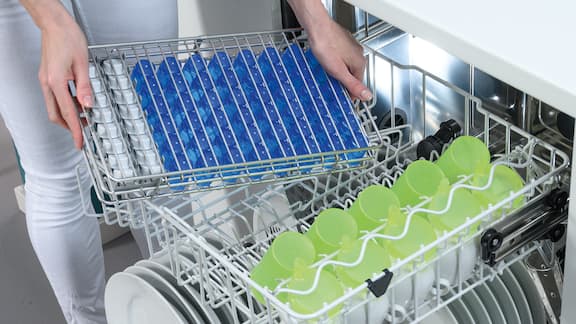
Hygiene in the hospital kitchen
Hospital patients are usually frail and in particular need of protection – which is also an important factor when washing items at the hospital. This makes it all the more important that patients only come into contact with hygienically clean dishes or other utensils. In this way, they can be kept safe from food-related infections. Users should always ensure the use of sufficient detergent.
Offices and agencies
A sense of security and well-being: these hygiene measures and tips will help you get the best from your Miele Professional machines when using them from day to day at your office or agency.

Hygiene in the kitchenette
Dishes, cups, glasses and carafes can easily pile up in your office or agency kitchenette. In any place where lots of people congregate, it is very important to ensure that the items they use get hygienically cleaned – for the benefit of your customers and your own employees alike. Why? The answer is easy: for the sake of protecting people and keeping them safe. In this regard, a few simple steps can be taken to help people make more hygienic use of the dishwasher in the break room. For instance, staff should always pay attention to good basic hygiene when unloading clean dishes to avoid the risk of recontamination. In other words, they should wash their hands regularly and always before unloading the dishwasher. In addition, users should always ensure the use of sufficient detergent.

Miele Professional solutions for offices and agencies
Hotels, restaurants and educational establishments
Safety made simple: these hygiene measures and tips will help you get the best from your Miele Professional machines when using them in your day-to-day work, whether that be in a hotel, a restaurant, or a place of education.
Contract cleaning
Washing with disinfection: these hygiene measures and tips will help you get the best from your Miele Professional machines when using them in your day-to-day contract cleaning work.
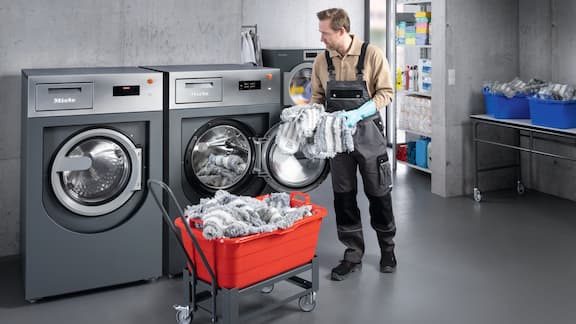
Hygiene when washing cleaning textiles
Through their cleaning and disinfection work, contract cleaners play a huge part in helping to prevent infection – particularly in areas where hygiene is crucial, such as hospitals, grocery shops or community facilities. This is because surfaces that are touched frequently carry an increased risk of transmitting infectious agents, which can enter the mucous membranes and cause infection. Door and window handles, light switches, banister rails and lift buttons are all typical examples of such contact surfaces. In such cases, wipe disinfection ensures a higher level of protection. However, this depends on the cleaning textiles having been professionally disinfected in the washing machine in the first place. This prevents clinically relevant microorganisms from multiplying. And special wash programs can certainly help in this regard.
All Miele Professional laundry feature numerous disinfection programs in accordance with the stipulations of European infection control authorities and hygiene associations. In addition, these programs incorporate further safety standards, such as a function for monitoring temperature control, thereby ensuring the safety of your cleaning textiles when they come out of the machine. We will be happy to provide evidence of this in the form of a hygiene certificate.
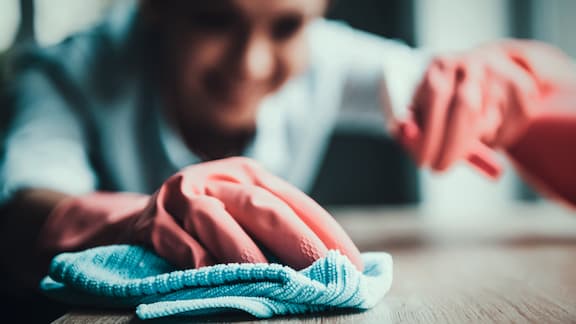
Miele Professional solutions for facility management
Fire brigades and emergency services
For your safety: these hygiene measures and tips will help you get the best from your Miele Professional machines when using them from day to day at your fire and rescue station.
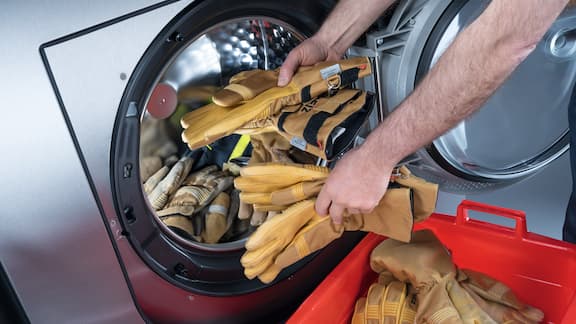
Hygiene when washing protective clothing
The protection of fire and rescue personal is one of the key aims when washing their protective clothing to make it hygienically clean. Whenever they go out on an operation, there is a risk of their protective clothing getting contaminated by pathogens (germs that cause illness). Consequently, the priorities when washing the clothing are to remove the dirt that has got trapped in the fibres and to avoid contamination. For this reason, fire and rescue clothing should be disinfected and, where applicable, treated with a proofing agent when it is washed. Treatment with a proofing agent stops contaminants from adhering to the fabric as much. Using special thermochemical wash programs for this ensures clean results. The final stage of any hygienic wash cycle is the drying process. Within this context, it is important to ensure that the clothing is not stored while still damp.
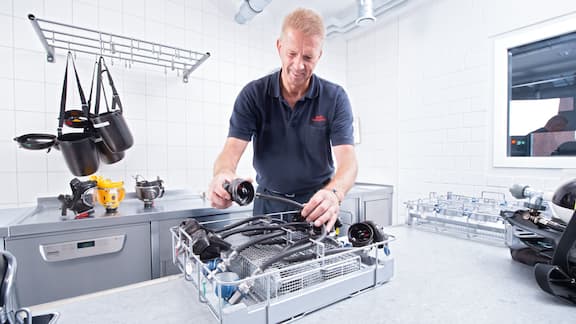
Hygiene when reprocessing reusable breathing masks and air regulators
Hygiene can sometimes be a matter of life and death, and so can selecting a reprocessing method that is appropriate for the type of material concerned – e.g. for the essential equipment that fire and rescue personnel use to protect themselves. Personal protective equipment, such as breathing masks and air regulators, comes into direct contact with bodily fluids but is not allocated to a particular individual. This means it is shared by different people and must be hygienically reprocessed before it can be reused. What's more, the breathing apparatus comes into contact with soot and other harmful substances (e.g. polycyclical aromatic hydrocarbons) during operations. It is absolutely essential to remove all traces of this soiling. To achieve the required level of cleanliness, you can use dishwashers and washer-disinfectors that have been specially kitted out to handle these applications in conjunction with thermochemical wash programs and tumble dryers with special holders for breathing masks.
